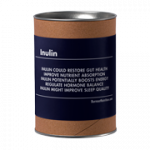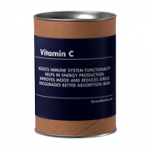Myalgic Encephalomyelitis/Chronic Fatigue Syndrome (ME/CFS) is a debilitating condition characterized by persistent fatigue, mental fog, and various other symptoms. Research suggests that probiotics, which are live beneficial bacteria, may help alleviate some ME/CFS symptoms by restoring a healthy gut microbiome balance. However, it’s crucial to consult your doctor before starting probiotics, as they can evaluate your condition, discuss potential risks and benefits, and recommend appropriate strains and dosages.
Related video from YouTube
Key Points
- Consult your doctor and discuss your symptoms, medical history, and any concerns before starting probiotics.
- Your doctor may recommend tests like blood tests, stool tests, or allergy tests to assess your gut health and identify potential issues.
- Be aware of potential interactions between probiotics and medications, supplements, or underlying medical conditions.
- Choose high-quality probiotics with strains like Lactobacillus casei Shirota, Bifidobacterium infantis, and Lactobacillus rhamnosus GG, which have been studied for ME/CFS benefits.
- Start with a low dose and gradually increase over a few weeks to allow your body to adjust and reduce potential side effects.
- Keep a daily symptom log and track any side effects to monitor your progress and discuss with your doctor during follow-up appointments.
- Complement your probiotic regimen with lifestyle changes like stress management, a balanced diet rich in prebiotic foods, and light physical activity as tolerated.
- If your symptoms persist or worsen, or if you experience severe side effects, consult your doctor for further evaluation and treatment adjustments.
Quick Comparison
Here’s a quick comparison of some probiotic strains that may be beneficial for ME/CFS:
| Probiotic Strain | Potential Benefits |
|---|---|
| Lactobacillus casei Shirota | May lower anxiety scores in ME/CFS patients |
| Bifidobacterium infantis | May decrease inflammatory markers in ME/CFS |
| Lactobacillus rhamnosus GG | Well-researched, histamine-friendly strain |
While probiotics show promise, individual responses may vary. Approach them with realistic expectations, work closely with your healthcare provider, and be patient and consistent in your probiotic regimen.
Getting Started
Talk to Your Doctor
1. Schedule an Appointment
Make an appointment with your doctor to discuss starting probiotics for ME/CFS. Provide your full medical history, including any current medications, supplements, or treatments.
2. Discuss Your Symptoms
Explain your symptoms and how they impact your daily life. This will help your doctor determine if probiotics may be helpful and guide their recommendations.
3. Ask Questions
Feel free to ask any questions or share concerns about taking probiotics. Your doctor can address these and provide personalized advice.
Tests and Evaluations
| Test | Purpose |
|---|---|
| Blood Tests | Check for nutrient deficiencies or imbalances |
| Stool Tests | Assess gut health and microbiome composition |
| Allergy Tests | Identify potential reactions to probiotic strains |
Your doctor may recommend tests to rule out underlying conditions or potential issues before starting probiotics. Follow their instructions and complete any recommended tests. The results will help determine the most appropriate probiotic formulation and dosage for your needs.
Potential Interactions
1. Medications and Supplements
Inform your doctor about all medications, supplements, and treatments you are currently taking. Probiotics may interact with certain drugs or supplements, potentially reducing their effectiveness or causing side effects.
2. Medical Conditions
If you have any underlying medical conditions, such as a compromised immune system or a history of allergic reactions, discuss these with your doctor. They can advise you on the safety and suitability of probiotics in your specific case.
3. Medication Interactions
Be aware that probiotics may interact with certain medications, such as antibiotics, immunosuppressants, or antifungal drugs. Your doctor can help you navigate these potential interactions and make necessary adjustments to your treatment plan.
Choosing the Right Probiotic
Probiotic Strains
When picking a probiotic for ME/CFS, look for strains studied for potential benefits. Lactobacillus and Bifidobacterium strains are often suggested, as they may help reduce inflammation, improve gut health, and ease symptoms like anxiety.
Some specific strains to consider:
- Lactobacillus casei Shirota: One study found this strain lowered anxiety scores in ME/CFS patients.
- Bifidobacterium infantis: Research suggests this strain may decrease inflammatory markers in ME/CFS.
- Lactobacillus rhamnosus GG: This well-researched strain is histamine-friendly and may suit those with histamine intolerance or mast cell activation syndrome.
Probiotic Formulas
Besides individual strains, consider probiotic formulas designed for gut health or ME/CFS. These products often combine multiple strains for combined effects.
For example, "GutMagnific™" is an evidence-based formula created to address gut microflora imbalances and alleviate symptoms linked to ME/CFS and irritable bowel syndrome (IBS).
Quality and Potency
When choosing a probiotic, look for high-quality, potent products from reputable brands. Check for clear labeling, including the specific strains, colony-forming units (CFUs), and expiration dates.
Opt for probiotics with billions of CFUs rather than millions, as higher potency may be more effective. Also, consider products that use human-sourced strains and have been tested for survivability in the digestive tract.
Follow storage instructions, as probiotics are living organisms and can be affected by temperature and moisture.
sbb-itb-cf04d29
Getting Ready for Probiotics
Assess Your Diet
Before starting probiotics, look at your diet and make changes to support a healthy gut:
- Eat More Prebiotic Foods: Increase your intake of vegetables, fruits, whole grains, and legumes. These provide fiber that feeds the good gut bacteria.
- Limit Processed Foods: Cut back on processed foods, sugar, and artificial sweeteners, which can feed harmful bacteria.
- Stay Hydrated: Drink plenty of water to support overall gut health.
Start Slow
When beginning probiotics, start with a low dose and gradually increase over a few weeks. This allows your body to adjust and reduces potential side effects like gas, bloating, or digestive discomfort. Pay attention to how you feel and adjust the dosage as needed.
Dosage and Timing
| Tip | Details |
|---|---|
| Follow Recommendations | Take the dosage recommended by your healthcare provider or the supplement label. |
| Timing | Many experts suggest taking probiotics with a meal or snack to improve absorption and survivability through the digestive system. |
| Consistency | Aim to take probiotics around the same time each day for best results. |
Tracking Your Progress
Daily Symptom Log
Keep a daily log to note any changes in your energy, mental clarity, digestion, pain levels, and other ME/CFS symptoms after starting probiotics. This will help identify patterns and see if the probiotics are helping or causing any issues.
Side Effect Tracking
Probiotics are generally safe, but some people may experience side effects like gas, bloating, or digestive discomfort when starting a new supplement. Record any potential side effects you experience. If you have severe or persistent side effects, contact your healthcare provider right away.
Follow-up Appointments
Regular check-ins with your healthcare provider are important to monitor your progress and make informed decisions about your probiotic regimen. During these appointments, discuss your symptom log, any side effects, and any other concerns or questions you may have. Your provider can then assess the effectiveness of the probiotics and recommend adjustments or alternative treatments if needed.
| Tip | Details |
|---|---|
| Symptom Log | Note changes in energy, mental clarity, digestion, pain, and other ME/CFS symptoms daily. |
| Side Effects | Record any potential side effects like gas, bloating, or digestive discomfort. |
| Follow-ups | Discuss your symptom log, side effects, and concerns with your provider during regular check-ins. |
Lifestyle Changes for Better Health
Managing Stress
Reducing stress levels can help ease ME/CFS symptoms. Try these simple techniques:
- Meditation and deep breathing: Calm your mind and relax your body.
- Gentle yoga: Soothing poses and mindful movements can relieve tension.
- Journaling: Writing down your thoughts and feelings can be therapeutic.
Balanced Eating
A fiber-rich diet with prebiotic foods can support gut health and overall wellness:
- Fiber sources: Eat plenty of fruits, veggies, whole grains, and legumes.
- Prebiotic foods: Include onions, garlic, bananas, and whole-wheat products.
- Stay hydrated: Drink water and herbal teas to aid digestion.
Light Activity and Hydration
| Tip | Details |
|---|---|
| Stay hydrated | Aim for at least 8 glasses of fluids daily. |
| Light exercise | Try gentle activities like walking or stretching. |
| Rest periods | Listen to your body and allow for recovery time. |
Proper hydration and light physical activity (as tolerated) can complement your probiotic regimen. Engage in gentle exercises to improve circulation and energy levels, but also prioritize rest and recovery to manage fatigue.
When to Seek Further Help
Symptoms Persist or Worsen
If you’ve been taking probiotics as recommended by your healthcare provider, but your ME/CFS symptoms continue or become worse over time, it’s advisable to consult them again. While probiotics can help some people, they may not provide relief for everyone. Persistent or worsening symptoms could indicate the need for further evaluation or different treatment approaches.
Severe Side Effects Occur
Probiotics are generally considered safe, but some people may experience adverse reactions or severe side effects. If you develop concerning symptoms such as severe digestive issues, allergic reactions, or any other worrying side effects after starting probiotics, seek medical attention promptly. Your healthcare provider can assess the situation and determine the appropriate course of action.
No Improvement After a Trial Period
If you’ve diligently followed the probiotic regimen for a reasonable trial period (typically 4-8 weeks) and haven’t noticed any significant improvement in your ME/CFS symptoms, it’s recommended to consult your healthcare provider again. They may suggest adjusting the probiotic strain, dosage, or exploring alternative treatment options tailored to your specific needs.
| Scenario | Action |
|---|---|
| Symptoms persist or worsen | Consult your healthcare provider |
| Severe side effects occur | Seek medical attention promptly |
| No improvement after a reasonable trial period | Discuss alternative treatment options with your provider |
Conclusion
Key Points
- ME/CFS is a complex condition. Each person may respond differently to probiotic supplements. Approach it with realistic expectations.
- Work closely with your healthcare provider:
- Choose the right probiotic strain(s) and dosage
- Monitor progress
- Make adjustments as needed
- Be patient and consistent. It may take weeks or months to experience the full benefits.
- Keep a symptom journal to track changes, improvements, or side effects accurately.
- Probiotics are generally safe, but consult your doctor if you experience severe or persistent side effects.
Stay Informed
ME/CFS research is an evolving field. New insights into the role of probiotics and gut health are emerging. Stay informed by:
| Source | Details |
|---|---|
| Reputable Medical Organizations | Follow updates from trusted organizations |
| Patient Advocacy Groups | Connect with groups supporting ME/CFS patients |
| Scientific Articles | Read articles on the latest research findings |
| Educational Seminars/Webinars | Attend seminars or webinars on the topic |
| Support Groups | Share experiences and learn from others on a similar journey |
FAQs
Do probiotics help with chronic fatigue syndrome?
Probiotics may offer potential benefits for people with chronic fatigue syndrome (ME/CFS). Research suggests that probiotics can help restore the balance of good bacteria in the gut, which could ease some ME/CFS symptoms.
Several studies have found that taking probiotics can:
- Reduce inflammation markers like C-reactive protein, interleukin-6, and tumor necrosis factor-alpha
- Improve anxiety and mental health
- Increase levels of beneficial bacteria like Bifidobacteria and Lactobacillus in the gut
However, individual responses may vary. Some people with ME/CFS report improvements, while others experience no change or even worsening of symptoms. Consulting with a healthcare provider and trying different probiotic strains may be necessary to find the most suitable option.
| Potential Benefits | Considerations |
|---|---|
| Lower inflammation | Individual responses differ |
| Improved gut health | Consult a doctor for guidance |
| Better mental well-being | Try different probiotic strains |
| Replenished gut bacteria | Monitor for side effects |
While probiotics are generally safe, it’s advisable to start with a low dose and gradually increase it under medical supervision, especially for those with histamine intolerance or mast cell activation syndrome.
Related posts
- Top 8 Probiotic Strains for CFS/ME Symptom Relief
- 10 Nutrition Tips to Manage Chronic Fatigue Syndrome
- Probiotics Improve Cognitive Function in ME/CFS
- Probiotics for Chronic Fatigue & Gut Health: Benefits






Leave a Reply